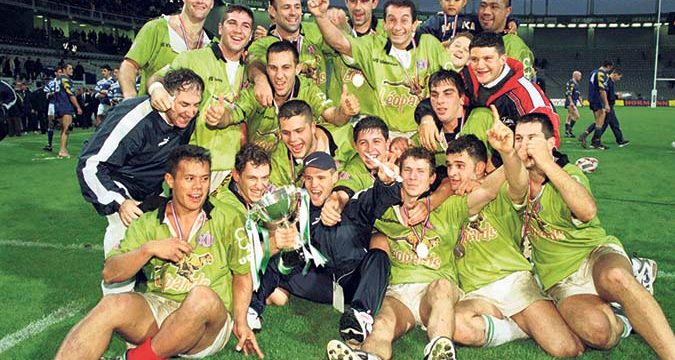 Twenty two years ago this week, one of British Rugby League’s most innovative yet typically short-lived innovations was reaching its conclusion.
On November 1, 1998, Villeneuve Leopards lifted the inaugural - and only - Treize Tournoi trophy by beating Lancashire Lynx in front of 10,283 fans at the Stade de Toulouse.
It was the culmination
Twenty two years ago this week, one of British Rugby League’s most innovative yet typically short-lived innovations was reaching its conclusion.
On November 1, 1998, Villeneuve Leopards lifted the inaugural - and only - Treize Tournoi trophy by beating Lancashire Lynx in front of 10,283 fans at the Stade de Toulouse.
It was the culmination Do you remember the Treize Tournoi ?
 Twenty two years ago this week, one of British Rugby League’s most innovative yet typically short-lived innovations was reaching its conclusion.
On November 1, 1998, Villeneuve Leopards lifted the inaugural - and only - Treize Tournoi trophy by beating Lancashire Lynx in front of 10,283 fans at the Stade de Toulouse.
It was the culmination
Twenty two years ago this week, one of British Rugby League’s most innovative yet typically short-lived innovations was reaching its conclusion.
On November 1, 1998, Villeneuve Leopards lifted the inaugural - and only - Treize Tournoi trophy by beating Lancashire Lynx in front of 10,283 fans at the Stade de Toulouse.
It was the culmination 